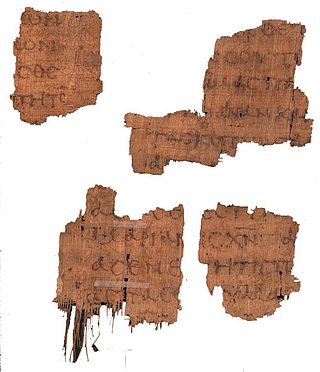
Lucius Junius Brutus was the semi-legendary founder of the Roman Republic, and traditionally one of its first consuls in 509 BC. He was reputedly responsible for the expulsion of his uncle the Roman king Tarquinius Superbus after the suicide of Lucretia, which led to the overthrow of the Roman monarchy. He was involved in the abdication of fellow consul Tarquinius Collatinus, and executed two of his sons for plotting the restoration of the Tarquins.
Decimus Junius Silanus Torquatus was a Roman senator who lived during the 1st century.
Two noblemen, an uncle and nephew, who shared the name Lucius Junius Silanus Torquatus and were descendants of the Roman Emperor Augustus, lived during the 1st century AD.
Junia Calvina was a Roman noblewoman who lived in the 1st century AD.
Junia Lepida was a Roman noblewoman who lived in the first century.

The gens Junia or Iunia was one of the most celebrated families of ancient Rome. The gens may originally have been patrician, and was already prominent in the last days of the Roman monarchy. Lucius Junius Brutus was the nephew of Lucius Tarquinius Superbus, the seventh and last king of Rome, and on the expulsion of Tarquin in 509 BC, he became one of the first consuls of the Roman Republic.
Junia Tertia, also called Tertulla, was the third daughter of Servilia and her second husband Decimus Junius Silanus, and later the wife of Gaius Cassius Longinus.
Decimus Junius Silanus may refer to:

Junia or Junias was a Christian in the first century known from Paul the Apostle's letter to the Romans.

Andronicus of Pannonia was a 1st-century Christian mentioned by the Apostle Paul in his Epistle to the Romans :
Salute Andronicus and Junia, my kinsmen, and my fellow prisoners, who are of note among the apostles, who also were in Christ before me.

Junia Claudilla, also known as Junia Claudia, was the first wife of the Roman Emperor Caligula before he came to power.

Aemilia Lepida was a noble Roman woman and matron. She was the first great-grandchild of the Emperor Augustus.
Junia, called Junia Secunda by modern historians to distinguish her from her sisters, was an ancient Roman woman who lived in the 1st century BC. She was the sister of Marcus Brutus, and was married to the triumvir Marcus Aemilius Lepidus.

Marcia Furnilla was a Roman noblewoman who lived in the 1st century. Furnilla was the second and last wife of the future Roman Emperor Titus as well as the aunt of the future emperor Trajan.
Tertia is the Latin word for "third"
Publius Aelius Hadrianus Marullinus, also known as Aelius Hadrianus Marullinus or Aelius Marullinus, was a Roman Senator of Praetorian rank from Hispania who lived in the Roman Empire during the 1st century.
Licinia is a Latin name and proper adjective that may refer to:

Romans 16 is the sixteenth chapter of the Epistle to the Romans in the New Testament of the Christian Bible. It was authored by Paul the Apostle, while Paul was in Corinth in the mid-50s AD, with the help of a secretary (amanuensis), Tertius, who adds his own greeting in verse 22. While this chapter contains Paul's personal recommendation, personal greetings, final admonition, grace, greetings from companions, identification of its writer/amanuensis and a blessing, Martin Luther notes that it
also includes a salutary warning against human doctrines which are preached alongside the Gospel and which do a great deal of harm. It's as though he had clearly seen that out of Rome and through the Romans would come the deceitful, harmful Canons and Decretals along with the entire brood and swarm of human laws and commands that is now drowning the whole world and has blotted out this letter and the whole of the Scriptures, along with the Spirit and faith. Nothing remains but the idol Belly, and St. Paul depicts those people here as its servants. God deliver us from them. Amen.
Saturnina was a Christian virgin martyr, now considered to be purely legendary.
Junia Silana was a Roman patrician. She was the sister of Junia Claudilla, the first wife of Caligula, before he became emperor. Silana was a prominent figure in the power struggles that transpired in the reign of three different emperors. She was also noted for her close relationship with Julia Agrippina.
This page is based on this
Wikipedia article Text is available under the
CC BY-SA 4.0 license; additional terms may apply.
Images, videos and audio are available under their respective licenses.







